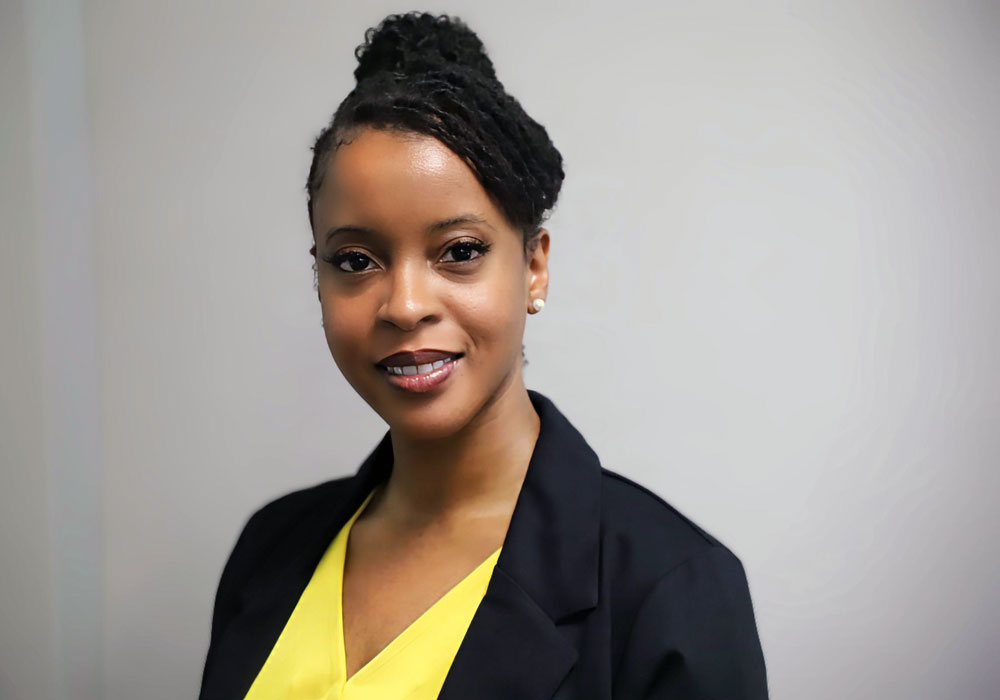As Betty Wilson begins this fall as an assistant professor at the College of Social Work, she sees the University of South Carolina as a return to her community.
The two-time USC graduate and South Carolina native is back in Columbia after two years on the faculty of Washington State University.
“I refer to Carolina as home,” Wilson says. “It's an honor to be back and to share my expertise.”
Wilson earned her B.A. in sociology at Claflin University and then continued on at USC for a Master of Social Work and a social work Ph.D. that was completed in 2022. Now, she is excited to re-connect with social work scholars at what she calls her academic home.
“My colleagues are doing such groundbreaking research,” Wilson says.
Her inspiration to enter the field was the example set by her paternal grandmother, Queen Wilson, who was a social worker in Bamberg County’s Department of Social Services for 32 years.
“She always spoke so highly of the profession and how we need more people committed to helping those in need,” Wilson says.
Wilson hails from Denmark, South Carolina, which is about an hour south of campus and home to a population of just over 3,000 people.
“It's a very vibrant, close-knit community that holds a special place in my heart,” she says.
Wilson works to mentor doctoral students and junior faculty, and she offers insights for her undergraduate students who are considering graduate education.
Wilson’s research interests cover community-police relations, criminal justice reform, historical and racial trauma, and family and community resilience. Her passion for social justice was inspired by historical and present-day incidents of racial and police violence.
“There is growing research and attention to issues surrounding harmful policing practices that disproportionately impact communities of color,” Wilson says. “These social-political events reveal that there's still room for social change and transformative justice in our society.”
Examining the intersection of policing trauma and race in society, her research focuses on justice-informed efforts to address policing disparities and to develop interventions that help mitigate the negative mental health outcomes associated with police violence exposure.
Wilson, who is a licensed clinical social worker with a background in community outreach services in historically marginalized communities, says shedding light on long-standing issues of police violence can help explore pathways for healing and resistance for communities that are routinely impacted.
“There is growing research and attention to issues surrounding harmful policing practices that disproportionately impact communities of color. These social-political events reveal that there's still room for social change and transformative justice in our society.”
“In my research, I take a deep dive into the trauma, grief and subsequent mental health outcomes associated with police violence in Black communities,” Wilson says.
In her classroom, students explore trauma not only from headlines of the past few years and what they might experience personally, they also explore trauma that has manifested historically.
“They can talk with their grandparents, who might have stories from the civil rights era or other historical incidents, and how present-day events are triggering aspects of past trauma,” Wilson says.
Now that Wilson has returned to Columbia, she feels as though she has a chance to expand of her social networks and community relationships to bring forth innovative and timely community-based research projects.
Wilson feels deeply connected to the people she knows in Columbia and knows she’s joining a community that will help advance her work.
“I believe that through my research, scholarship and community efforts that I will be able to contribute to change,” Wilson says.
Through her formal and informal networks, this is the piece of her career and profession she calls “soul work.”
“I'm able to reach back and pull others along, and it feeds my soul in a very spiritual and meaningful way.”
With her love for music and dance that includes tap, jazz, ballet and hip hop, she is eager to explore Columbia’s culture again.
“I love to dance,” Wilson says. “I love concerts, so that is a way to still have the creative arts around me and it’s an outlet for self-care.”
She is eager to expand her relationships across USC’s academic disciplines, including the College of Education, Law, Public Health, and the departments of History and African American Studies.
Wilson looks forward to teaching and interacting with students across campus and in the classroom. “Mentoring has been a huge part of my academic journey and is central to my work as an educator,” she says.
As a USC doctoral student, she remembers being mentored by faculty such as Terry Wolfer, Nikki Wooten, Ronald Pitner and Allison Anders.
“They have shown me what selfless and compassionate mentorship looks like,” Wilson says. “It’s critical for me to be a mentor that I was blessed to have throughout my education.”
